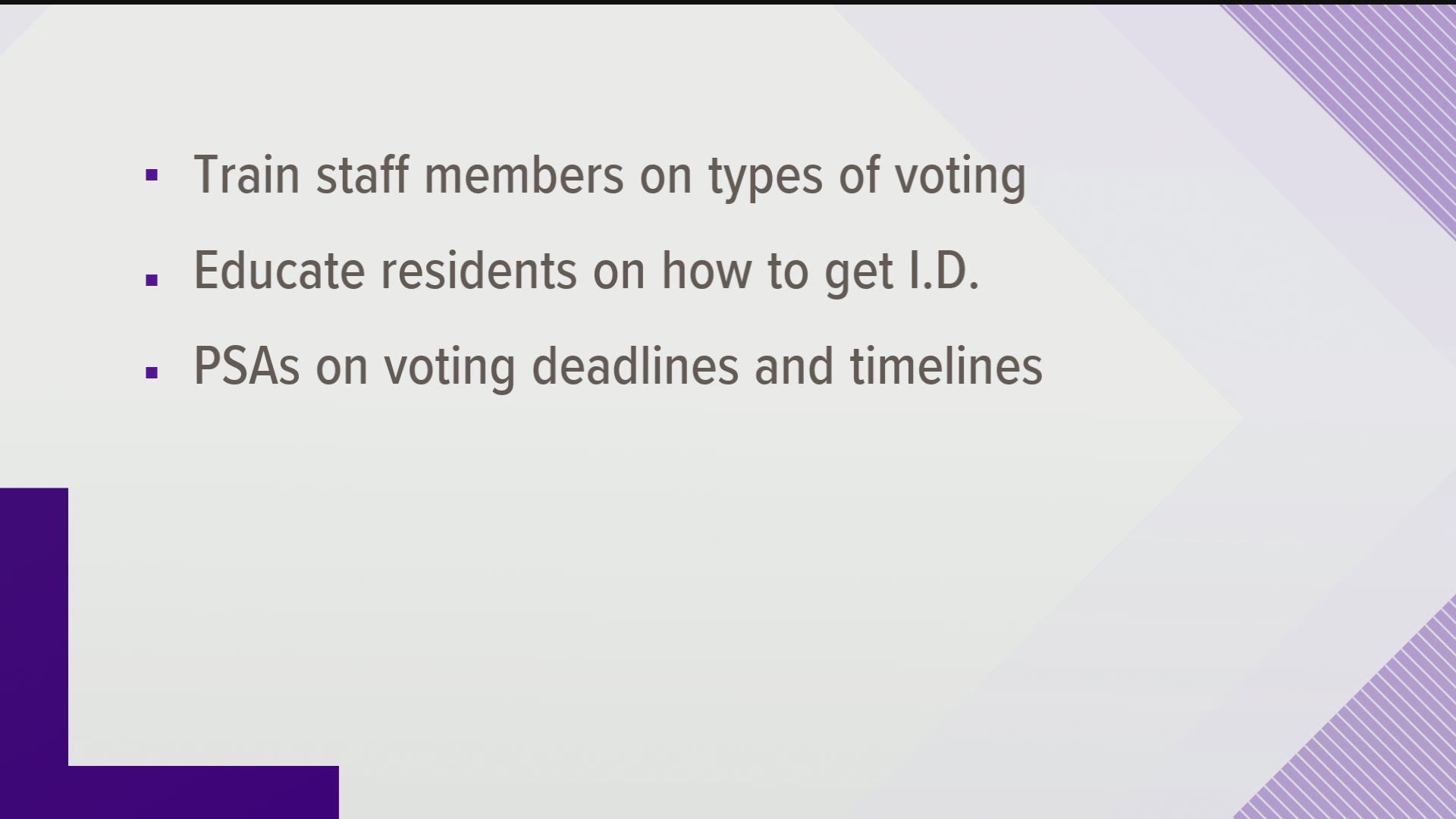ATLANTA — Mayor Keisha Lance Bottoms issued an administrative order Tuesday that she said would work expand access to Atlantans' right to vote. It's in response to Gov. Brian Kemp signing SB 202 - Georgia's new election bill - into law.
According to the mayor's office, the order would direct the Chief Equity Officer, under the city's authority, to develop a plan to:
- Coordinate with ATL311 - the city's non-emergency information service hub - and the Mayor’s Office of Constituent Services to provide training to staff members on voter registration and information on early, absentee, and in-person voting, and communicate the information to residents;
- Disseminate information to residents on how to obtain the forms of identification required for absentee voting;
- Coordinate with the operational departments to include QR Codes or links to websites providing information regarding voter registration and absentee voting in water bills and other mailings;
- Work with corporate and community partners to develop and roll out Public Service Announcements and other communications to make clear new voting-related deadlines and timelines
This is in addition to the previous action the city took during the 2020 election cycle to allow city employees to take up to four hours during work to vote and volunteer as poll workers.
The city said this new set of actions would "ensure every Atlanta resident has an opportunity to exercise their right to vote."
“The voting restrictions of SB 202 will disproportionately impact Atlanta residents—particularly in communities of color and other minority groups,” Mayor Bottoms said. “This Administrative Order is designed to do what those in the majority of the state legislature did not—expand access to our right to vote.”
The full order can be viewed here.
Critics of the new Georgia election law say some of the changes - like the shortened timeline to request an absentee ballot, shortened standardized early voting hours, restrictions of handing out food an water in voting lines, and new ID requirements for absentee ballots - restrict access to voters, especially those of color.
However, supporters of the bill say that the addition of another Saturday early voting day expands access, and the ID requirement would help make absentee ballot counting more efficient and "restore the integrity of the vote," though there was no evidence of any widespread issues with neither the 2020 presidential nor the Senate runoff election.

